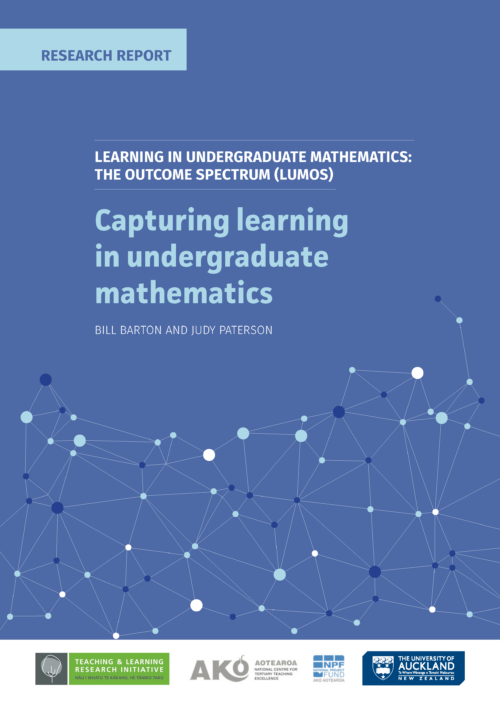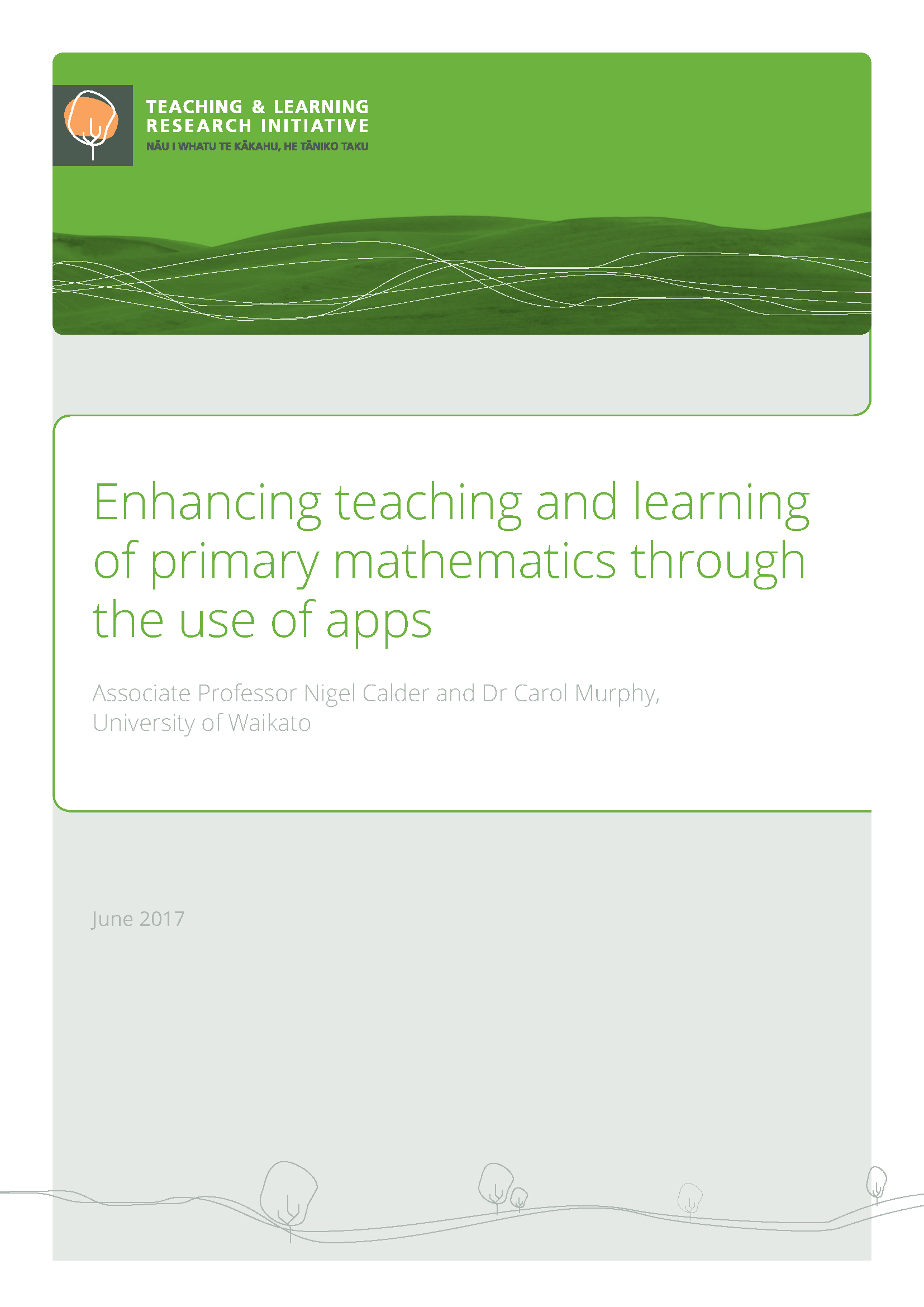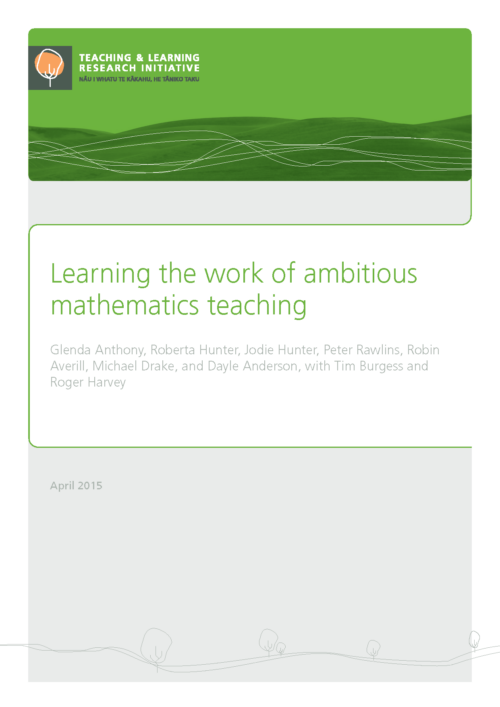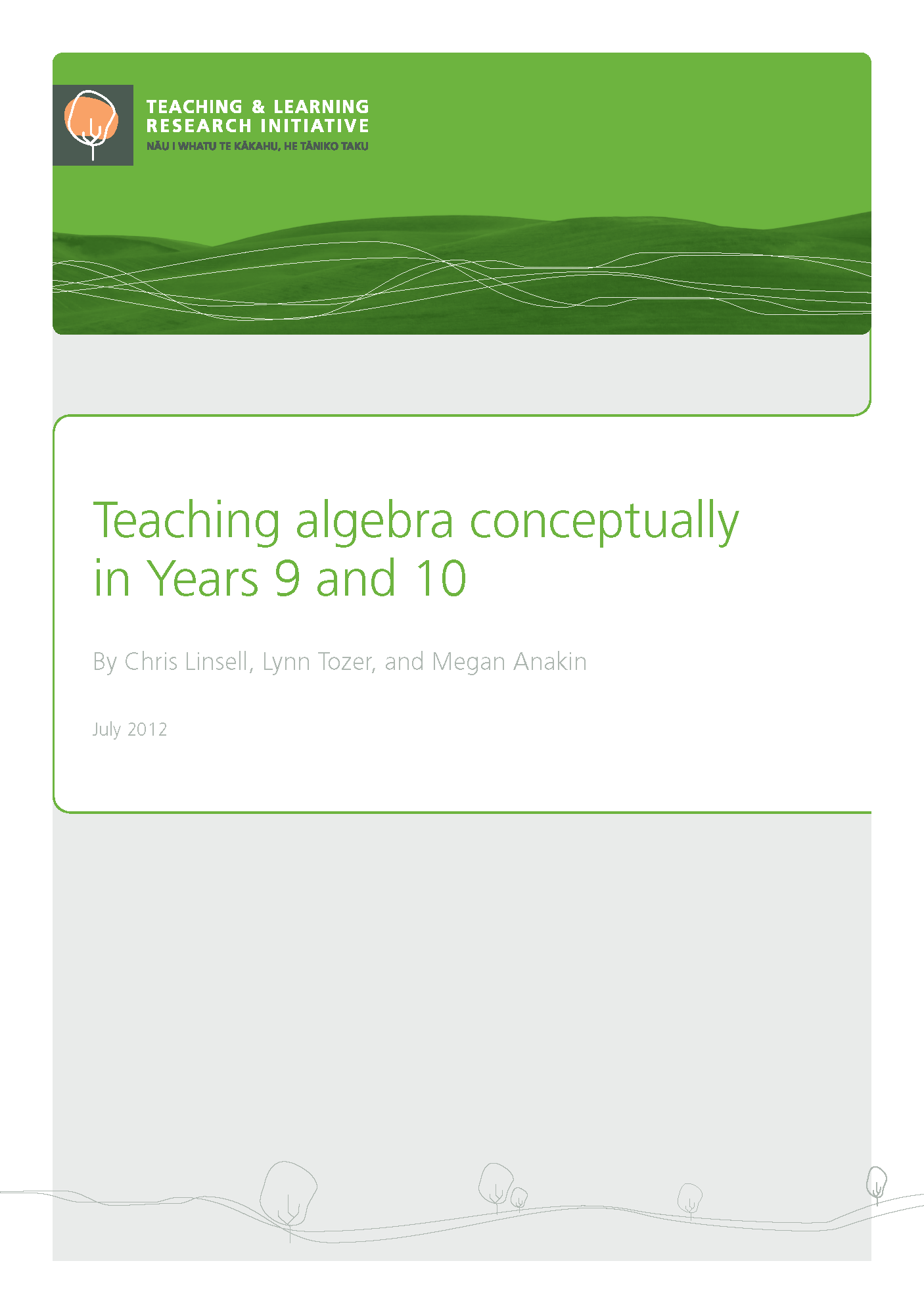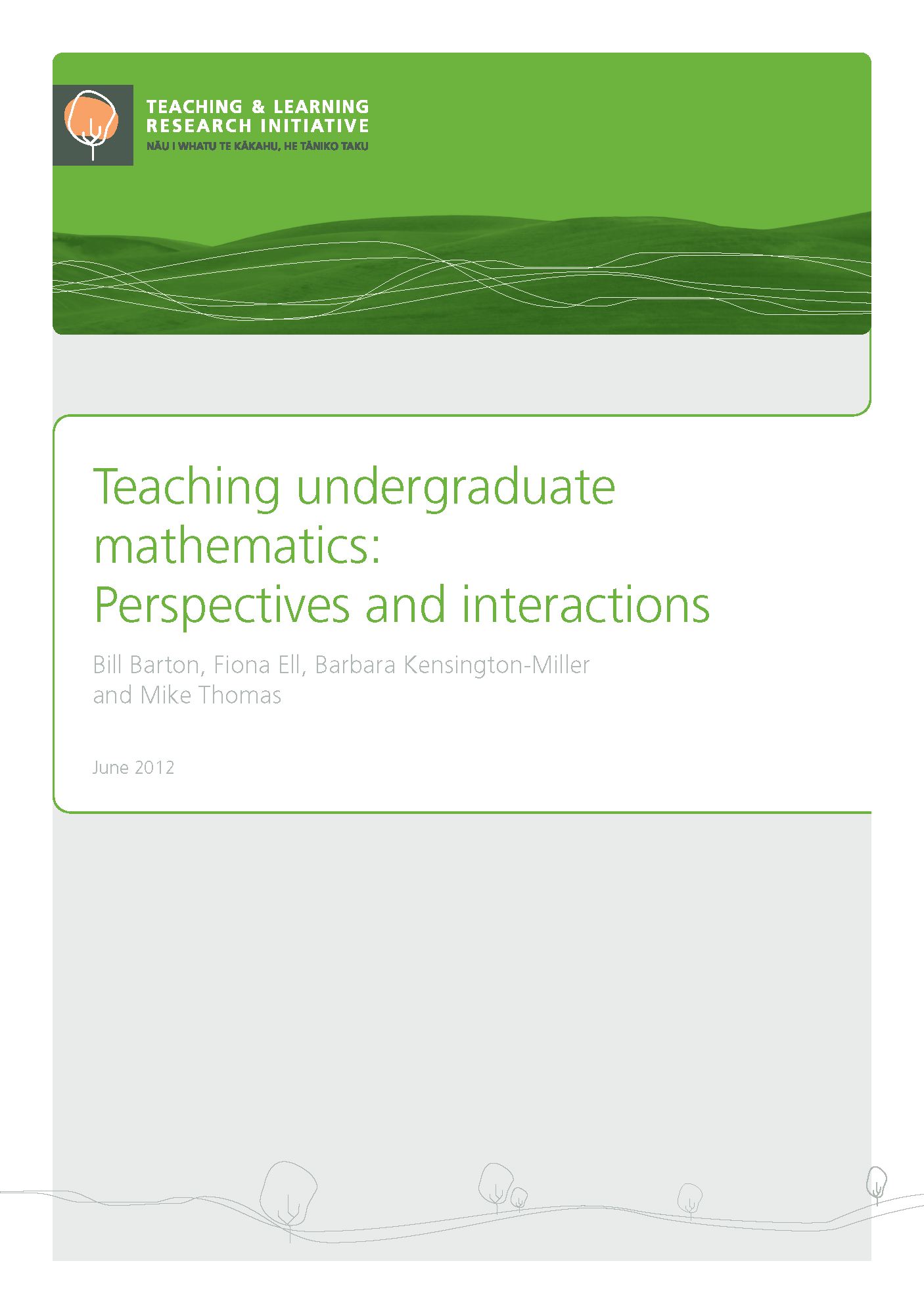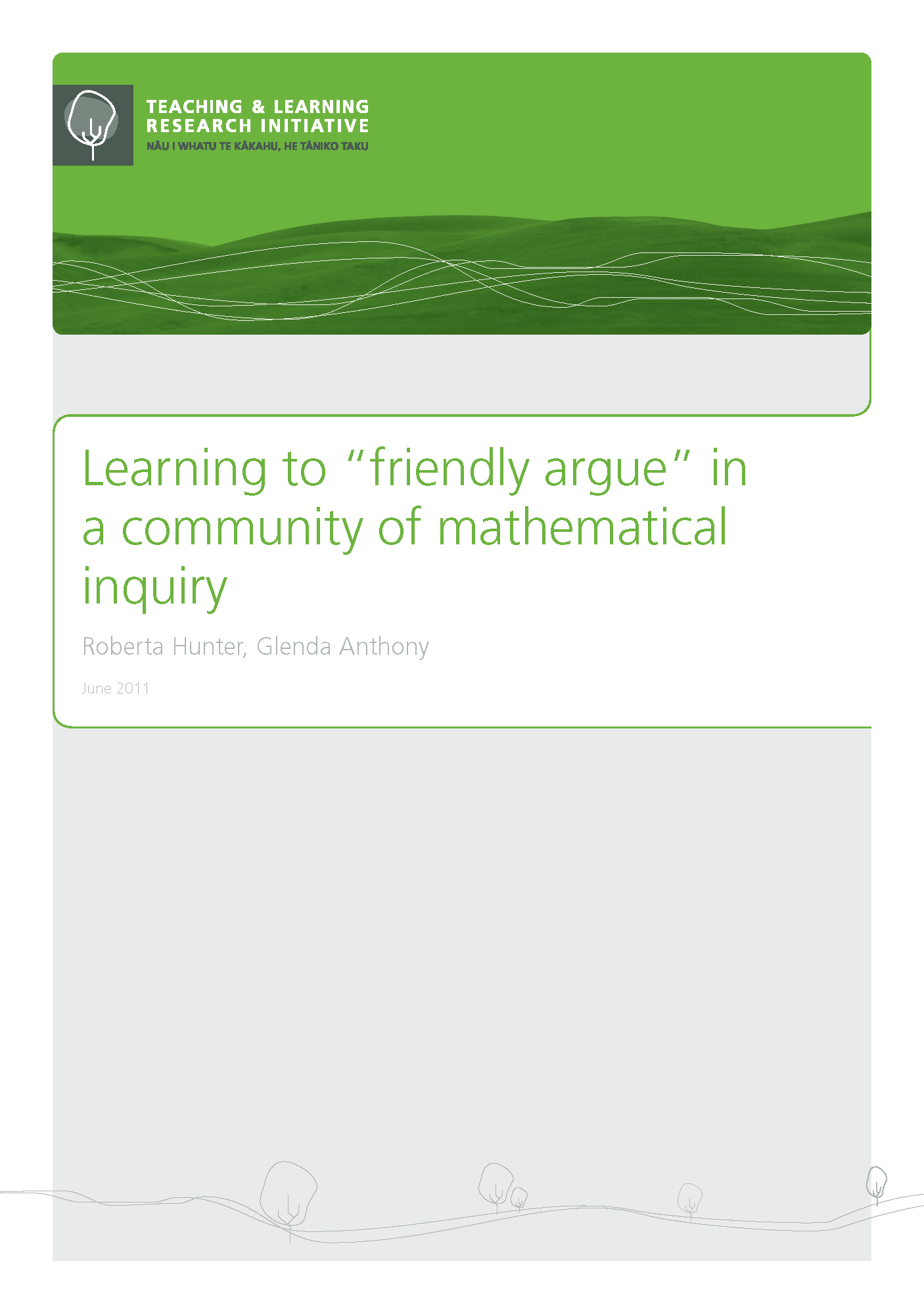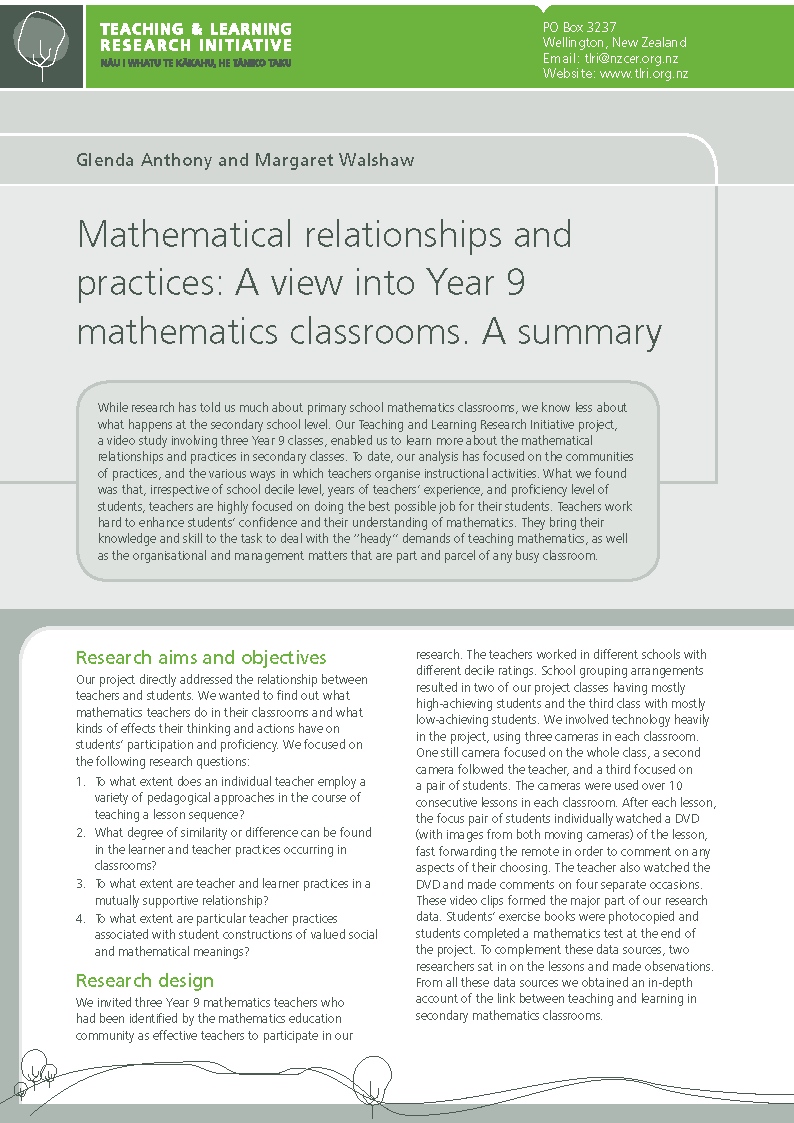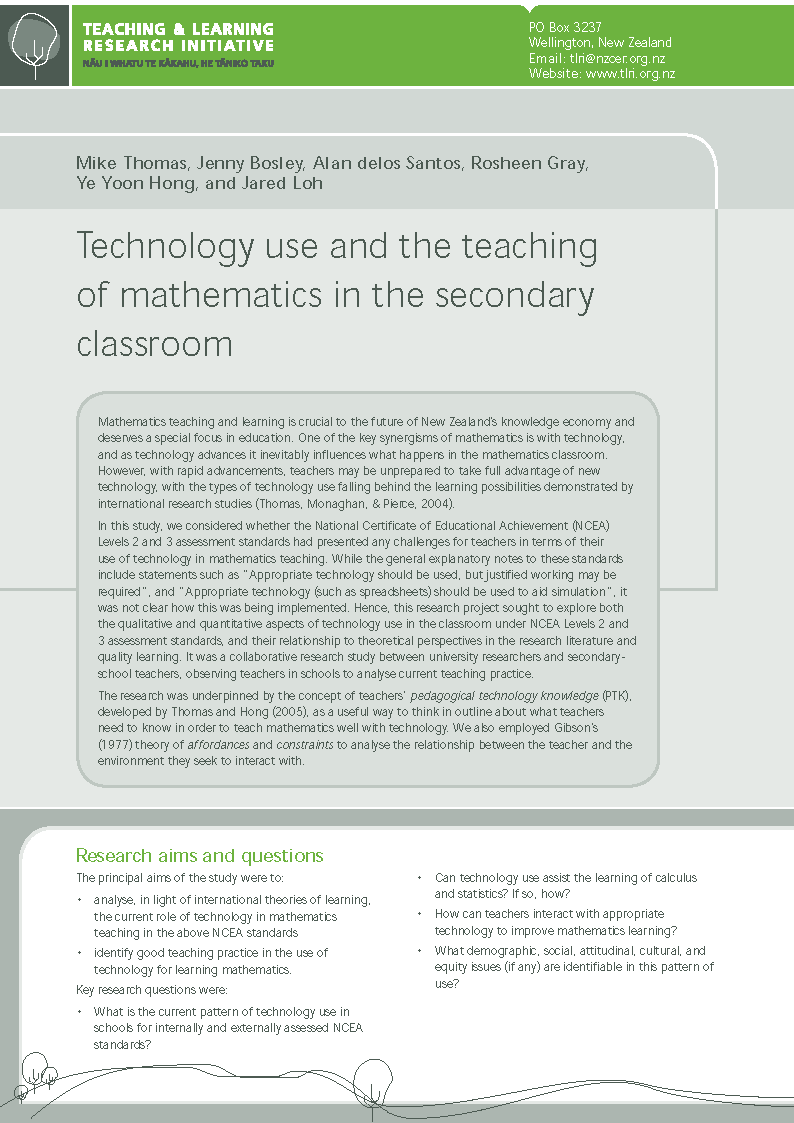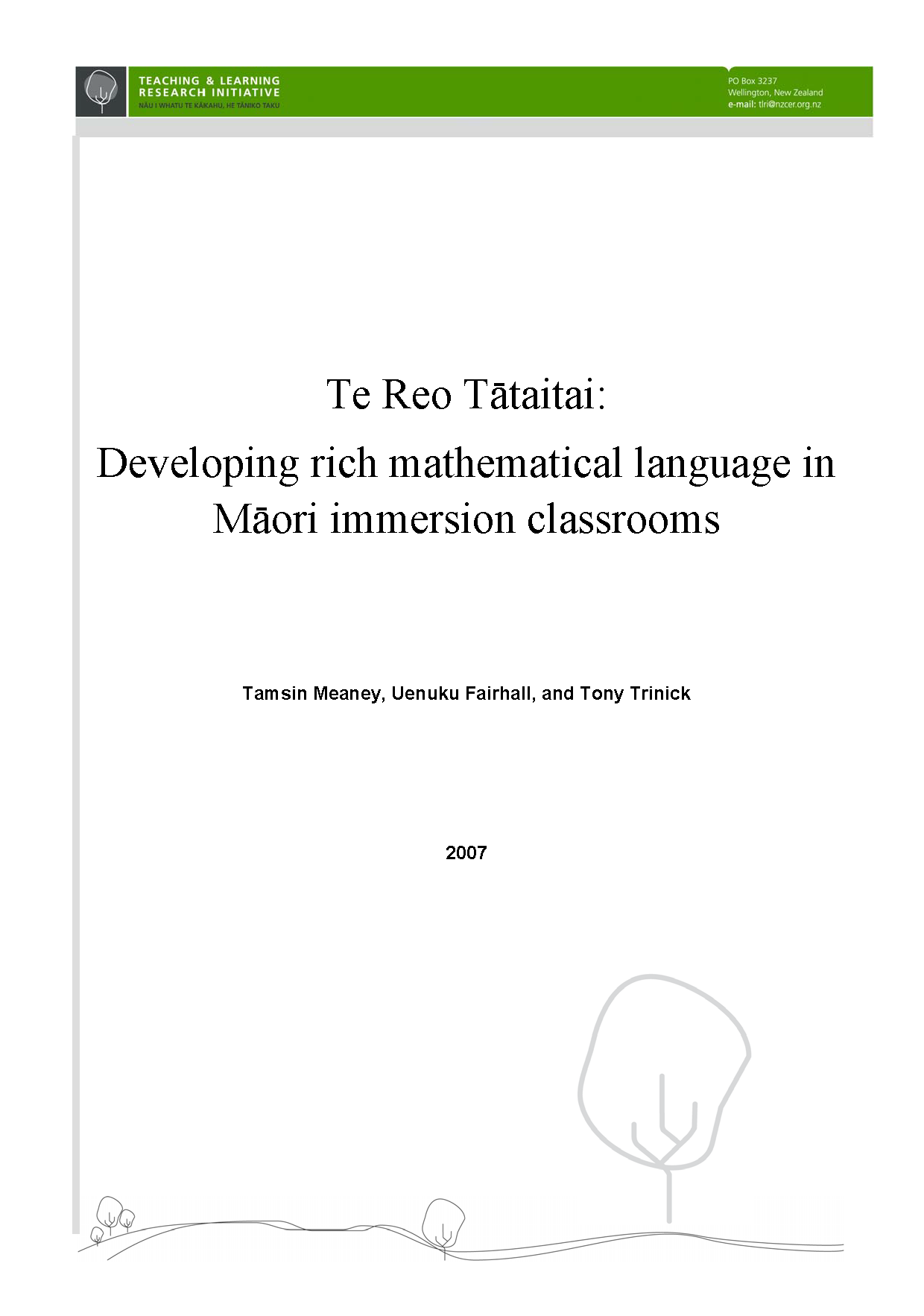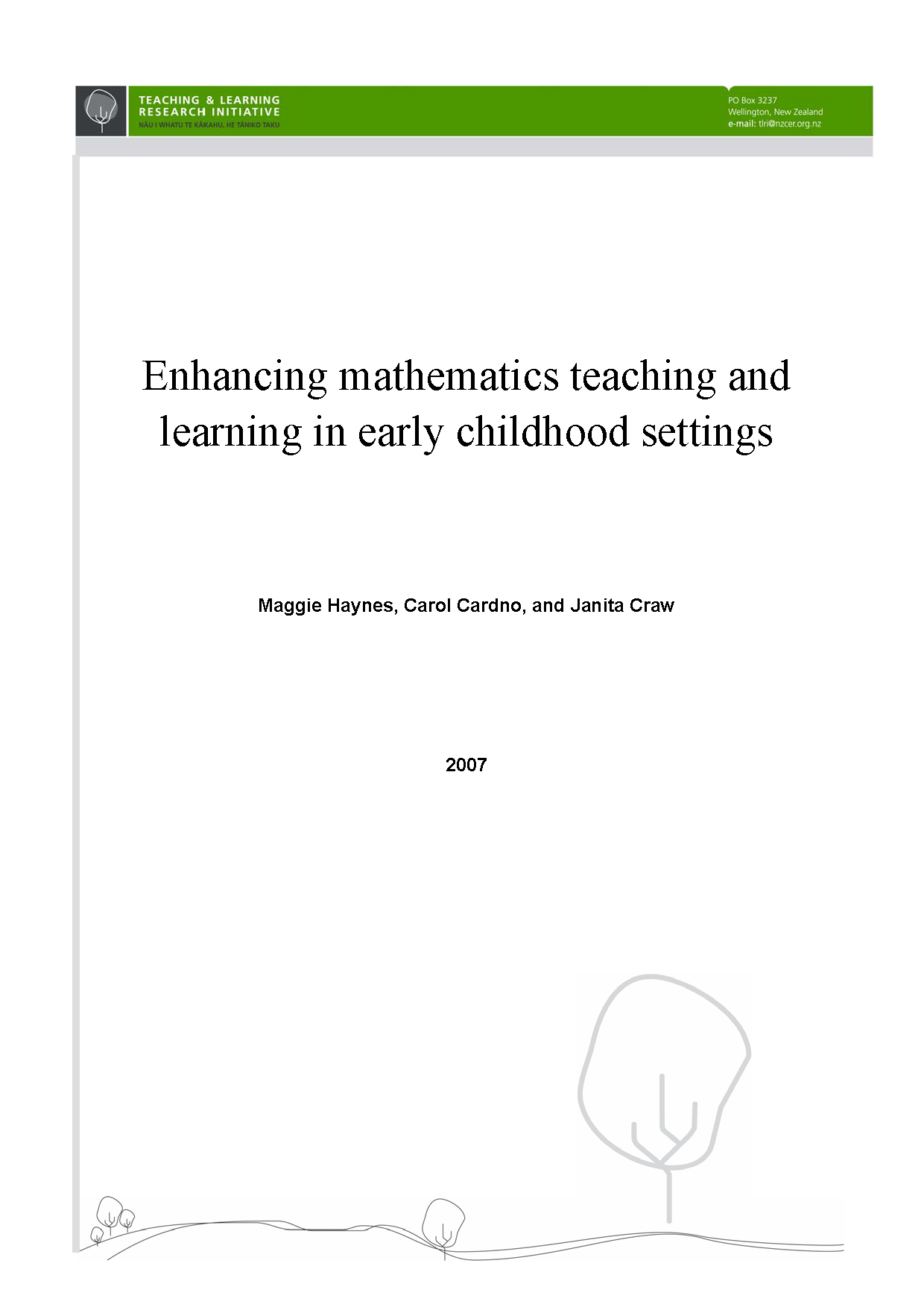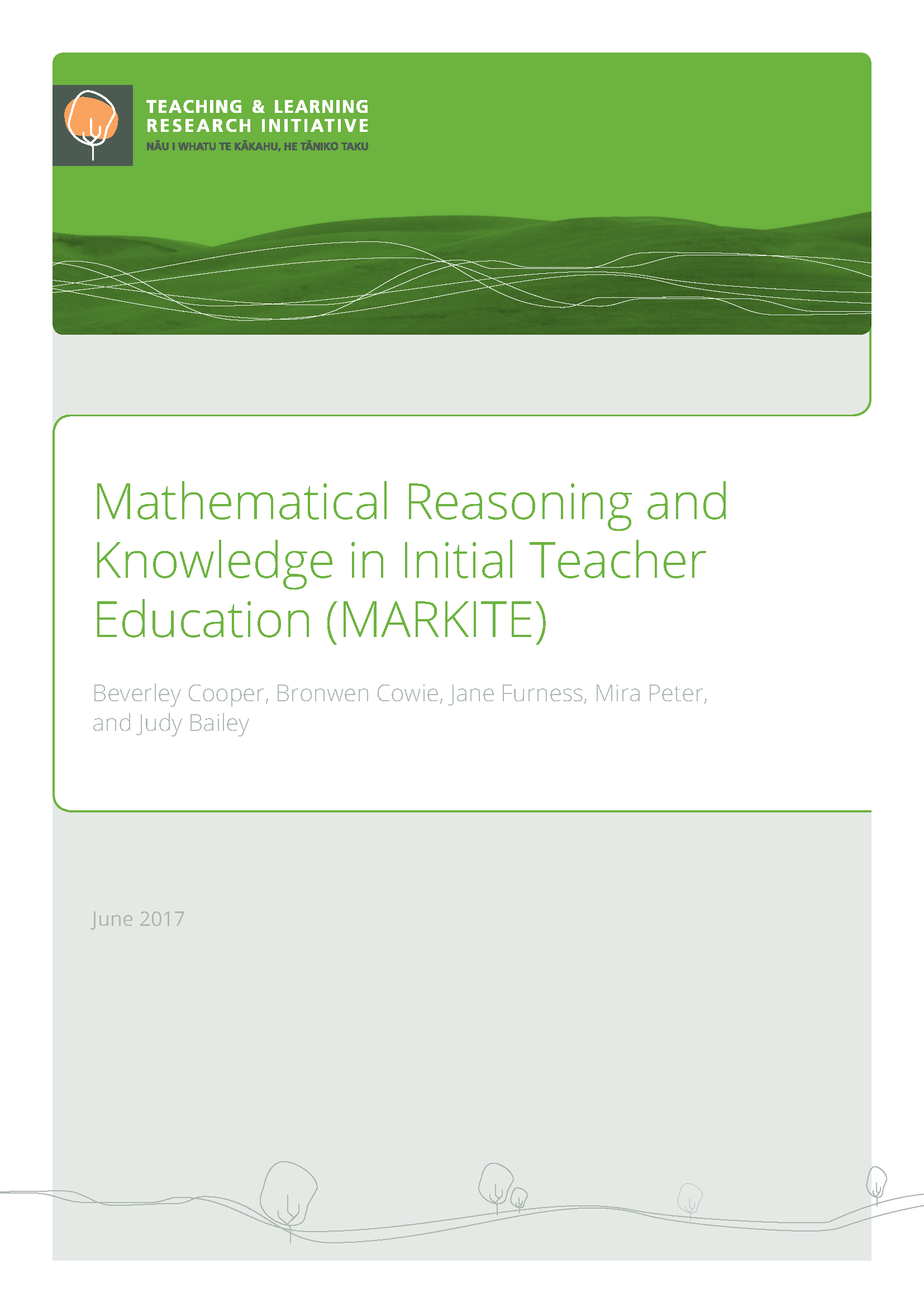
Mathematical Reasoning and Knowledge in Initial Teacher Education (MARKITE)
Introduction The New Zealand Government’s goal is to have an education system that equips all learners with the knowledge, skills, and values needed to be successful citizens in the 21st century (New Zealand Government, 2011); government policy recognises that mathematical understanding is fundamental to effective participation in society, and delivers significant social and economic benefits (Tertiary Education Commission, 2012). Unfortunately, studies suggest that a significant proportion of the adult population does not have the level of mathematical thinking needed to function effectively in society (Alkema & Rean, 2014; Department of Education and Skills, 2011; Satherley, Lawes, & Sok, 2008). Mathematical thinking and reasoning skills are embedded in many of the activities

